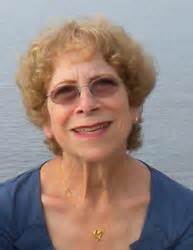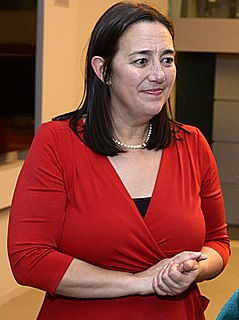A Quote by Alice Miller
I have never known a patient to portray his parents more negatively than he actually experienced them in childhood but always more positively--because idealization of his parents was essential for his survival.
Related Quotes
He had known he wanted her, that it was for all time, but he hadn’t realized what was between them. A priceless gift, a treasure beyond his dreams. She was wrapped so tight inside of him, he knew it was more than his body and mind. More than his heart. She was entrenched in his soul. (Ryland, on Lily)
I have great faith in 'ordinary parents.' Who has a child's welfare more at heart than his ordinary parent? It's been my experience that when parents are given the skills to be more helpful, not only are they able to use these skills, but they infuse them with a warmth and a style that is uniquely their own.
The birth of a man is the birth of his sorrow. The longer he lives, the more stupid he becomes, because his anxiety to avoid unavoidable death becomes more and more acute. What bitterness! He lives for what is always out of reach! His thirst for survival in the future makes him incapable of living in the present.
Depending on the year or the therapist he was seeing, he'd learned to ascribe just about every facet of his character as a psychological reaction to his parents' fighting: his laziness, his overachieving, his tendency to isolate, his tendency to seduce, his hypochondria, his sense of invulnerability, his self-loathing, his narcissism.
The more successful sons and daughters know when to lean on their parents - and when to go their own way. George W. Bush helped run his father's presidential campaigns in 1988 and 1992. But in his winning campaign for governor of Texas, he never mentioned his father's name in any of his campaign commercials.
There's a natural tendency for children to, in some sense, inherit the cultural values of their parents. I'm not against that, that's fine, that's wonderful. What I am against is labelling. Nobody ever labels a child a cricketer because his father is a cricketer, but they do label a child a Catholic because his parents are Catholic. I think it's more or less unique. Nobody ever labels a child a socialist or a conservative or a liberal because that's what their parents are.
The stories my pupils told me were astonishing. One told how he had witnessed his cousin being shot in the back five times; another how his parents had died of AIDS. Another said that he'd probably been to more funerals than parties in his young life. For me - someone who had had an idyllic, happy childhood - this was staggering.
His face set in grim determination, Richard slogged ahead, his fingers reaching up to touch the tooth under his shirt. Loneliness, deeper than he had never known, sagged his shoulders. All his friends were lost to him. He knew now that his life was not his own. It belonged to his duty, to his task. He was the Seeker. Nothing more. Nothing less. Not his own man, but a pawn to be used by others. A tool, same as his sword, to help others, that they might have the life he had only glimpsed for a twinkling. He was no different from the dark things in the boundary. A bringer of death.
He that makes himself famous by his eloquence, justice or arms illustrates his extraction, let it be never so mean; and gives inestimable reputation to his parents. We should never have heard of Sophroniscus, but for his son, Socrates; nor of Ariosto and Gryllus, if it had not been for Xenophon and Plato.






































